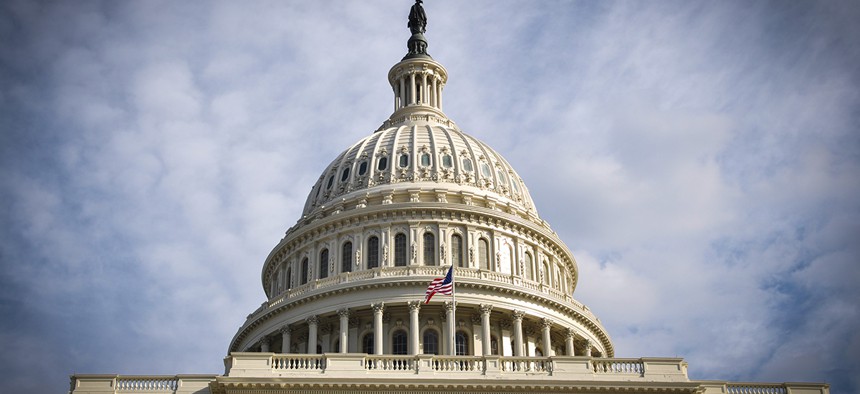Congressional Wins That Could Shape Trump's IT Agenda

Brandon Bourdages/Shutterstock.com
IT modernization champion Will Hurd was re-elected in Texas' 23rd district.
Donald Trump’s stunning victory early Wednesday morning may have overshadowed key congressional races, a handful of which could shape the president-elect’s tech agenda.
In one race late Tuesday, Rep. Will Hurd, the Republican from Texas’ 23rd congressional district, managed to stave off a Democratic challenger. Hurd has championed legislation that aims to fund IT modernization through new agency-based working capital funds, as well as a federalwide fund to which agencies could apply.
» Get the best federal technology news and ideas delivered right to your inbox. Sign up here.
Throughout his campaign, Trump’s tech policy views have remained largely opaque, but he has drawn criticism from prominent Silicon Valley tech executives from companies including Twitter, Apple and Facebook, claiming his “reckless disregard for our legal and political institutions” could inhibit new startup growth. In the past, Trump has also proposed “shutting down” parts of the internet to prevent terrorists from connecting with and radicalizing internet users.
In a Congress that now remains under Republican control, here are a few members who could influence future IT legislation in Trump's administration.
Sen. Ron Johnson, R-Wisc., stays chairman of the Homeland Security and Governmental Affairs Committee
In a contentious race, Johnson took 50 percent of the vote and defeated challenger Russ Feingold, a former Wisconsin senator whom Johnson unseated in 2010. As HSGAC chair, Johnson has urged the White House to establish real-time automated monitoring for cybersecurity threats. Last year, he introduced a measure requiring federal agencies to quickly deploy Einstein, the Homeland Security Department's cybersecurity system.
Sen. Richard Burr, R-N.C., keeps his seat as Senate Select Committee on Intelligence chairman
Burr took 51 percent of the vote in North Carolina, defeating Deborah Ross, a Democrat and former director of the American Civil Liberties Union. As Senate intelligence chairman, Burr has led investigations into the role of encrypted networks in allowing terrorists to plan attacks, such as the one in Paris last year.
Rep. Tammy Duckworth, D-Ill., won a Senate seat
Duckworth unseated Republican Sen. Mark Kirk, claiming both of Illinois' Senate seats for Democrats. In 2014, Kirk and Sen. Mark Warner, D-Va., held hearings on the Target credit card breach and sponsored a bill that would host U.S.-Ukraine cyber crime discussions.
Iraq War veteran and double-amputee Duckworth was serving on the House Committee on Armed Services and the Committee on Oversight and Government Reform's IT subcommittee. Duckworth has been a proponent of better software license management.
Rep. Will Hurd, R-Texas, returns as chair of the Information Technology Subcommittee
Hurd took 48 percent of the vote in the 23rd district, eking out a win over challenger and former Rep. Pete Gallego's 47 percent. Hurd recently introduced the Modernizing Government Technology Act, an attempt to patch together two opposing IT modernization proposals—one that would earmark existing funds for modernization projects, and another, from the White House, which would create a $3.1 billion pot of money other agencies could apply to. The Modernizing Government Technology Act recently passed in the House.
Rep. Darrell Issa, R-Calif., wins a tight race
Issa won against Democrat Doug Applegate, securing 51 percent of the vote. A former House oversight committee chairman, Issa has long been a proponent of reforming the way federal technology is purchased, sponsoring the Federal Information Technology Acquisition Reform Act, which would give chief information officers greater authority over agency budgets. FITARA was passed in 2014. Issa currently serves on the judiciary and foreign affairs committees.
Ro Khanna unseats Rep. Mike Honda, D-Calif.
In a California district encompassing the Bay Area and Silicon Valley tech hubs including Sunnyvale and Cupertino, Ro Khanna managed to oust incumbent Rep. Mike Honda. Now in his eighth term, Honda had been dogged by an ethics investigation into whether he had used personal resources politically. This is the second time the two faced off, following a previous match-up in 2014.
Heather Kuldell and Joseph Marks contributed to this report.





